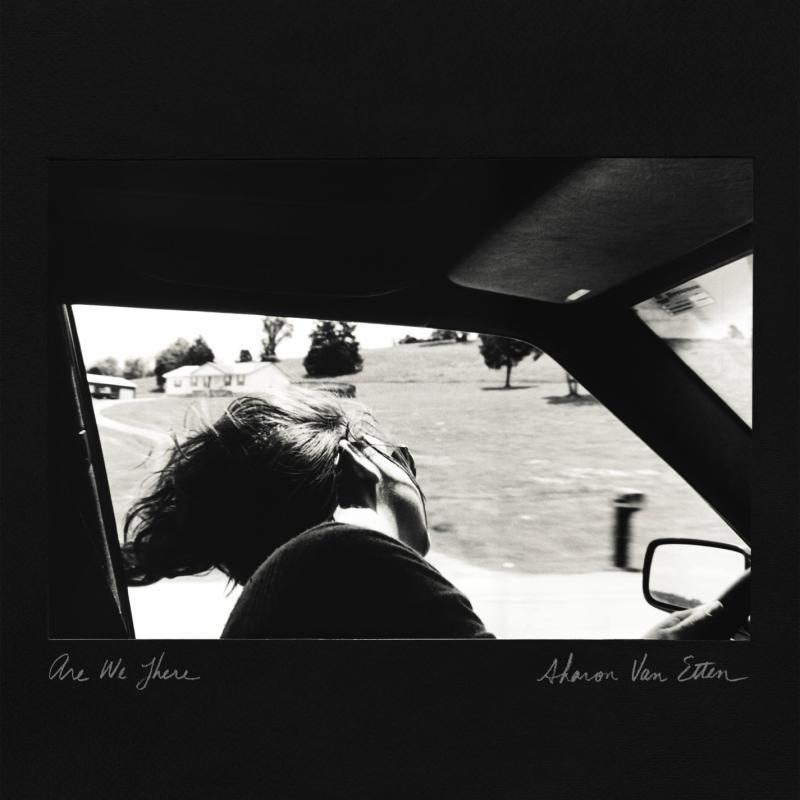CD: Sharon Van Etten - Are We There | reviews, news & interviews
CD: Sharon Van Etten - Are We There
CD: Sharon Van Etten - Are We There
Self-produced fourth album is American songwriter's finest hour

The first thing you’ll notice about Sharon Van Etten’s Are We There is how crystal-clear and clean it sounds. “Afraid of Nothing”, the album’s opening track, fizzes with hope and expectation like the long tail of a firework from its giddy opening lines: “you told me the day that you showed me your face we’d be in trouble for a long time - I can’t wait”.
The second thing you’ll notice about Are We There is how little time that cleanness stays around.
For her fourth album - a direct, unflinching portrait of a decade-long relationship that ultimately crumbled as her songwriting career blossomed - Van Etten chose to take production duties into her own hands. The result is something so intimate, and so honest, that it at once feels rude to listen to but at the same time impossible to tear yourself away from. The fuzziness and dirty groove of “Taking Chances”; the echoing drums that open “Your Love Is Killing Me”; the mournful Hammond organ that punctuates “Break Me”: these could all be devices to distract from Van Etten’s open, visceral lyrics. “I see your backhand again, I’m a sinner, I have sinned”, delivered with a dispassion and distance that somehow makes them even more painful to hear. “Maybe something will change…” Van Etten muses towards the album’s close, but given that the song itself is called “Nothing Will Change” it seems unlikely.
Van Etten’s voice can be many things - a soft-spoken spell, a jaw-dropping wail - but here, it’s when she’s at her most matter-of-fact that she kills it. The bridge of “Your Love Is Killing Me” is a shopping list of hopefully metaphorical abuse, sung with one eye soberly on the horizon while an orchestra swell struggles to contain the drama. Closing track “Every Time the Sun Comes Up” is languid, stream-of-consciousness performance poetry; just light enough to return the listener to the world.
Overleaf: watch the "Every Time The Sun Comes Up" video
rating
Explore topics
Share this article
The future of Arts Journalism
You can stop theartsdesk.com closing!
We urgently need financing to survive. Our fundraising drive has thus far raised £49,000 but we need to reach £100,000 or we will be forced to close. Please contribute here: https://gofund.me/c3f6033d
And if you can forward this information to anyone who might assist, we’d be grateful.

Subscribe to theartsdesk.com
Thank you for continuing to read our work on theartsdesk.com. For unlimited access to every article in its entirety, including our archive of more than 15,000 pieces, we're asking for £5 per month or £40 per year. We feel it's a very good deal, and hope you do too.
To take a subscription now simply click here.
And if you're looking for that extra gift for a friend or family member, why not treat them to a theartsdesk.com gift subscription?
more New music
 Moroccan Gnawa comes to Manhattan with 'Saha Gnawa'
Trance and tradition meet Afrofuturism in Manhattan
Moroccan Gnawa comes to Manhattan with 'Saha Gnawa'
Trance and tradition meet Afrofuturism in Manhattan
 Soulwax’s 'All Systems Are Lying' lays down some tasty yet gritty electro-pop
Belgian dancefloor veterans return to the fray with a dark, pop-orientated sound
Soulwax’s 'All Systems Are Lying' lays down some tasty yet gritty electro-pop
Belgian dancefloor veterans return to the fray with a dark, pop-orientated sound
 Music Reissues Weekly: Marc and the Mambas - Three Black Nights Of Little Black Bites
When Marc Almond took time out from Soft Cell
Music Reissues Weekly: Marc and the Mambas - Three Black Nights Of Little Black Bites
When Marc Almond took time out from Soft Cell
 Album: Mobb Deep - Infinite
A solid tribute to a legendary history
Album: Mobb Deep - Infinite
A solid tribute to a legendary history
 Album: Boz Scaggs - Detour
Smooth and soulful standards from an old pro
Album: Boz Scaggs - Detour
Smooth and soulful standards from an old pro
 Emily A. Sprague realises a Japanese dream on 'Cloud Time'
A set of live improvisations that drift in and out of real beauty
Emily A. Sprague realises a Japanese dream on 'Cloud Time'
A set of live improvisations that drift in and out of real beauty
 Trio Da Kali, Milton Court review - Mali masters make the ancient new
Three supreme musicians from Bamako in transcendent mood
Trio Da Kali, Milton Court review - Mali masters make the ancient new
Three supreme musicians from Bamako in transcendent mood
 Hollie Cook's 'Shy Girl' isn't heavyweight but has a summery reggae lilt
Tropical-tinted downtempo pop that's likeable if uneventful
Hollie Cook's 'Shy Girl' isn't heavyweight but has a summery reggae lilt
Tropical-tinted downtempo pop that's likeable if uneventful
 Pop Will Eat Itself's 'Delete Everything' is noisy but patchy
Despite unlovely production, the Eighties/Nineties unit retain rowdy ebullience
Pop Will Eat Itself's 'Delete Everything' is noisy but patchy
Despite unlovely production, the Eighties/Nineties unit retain rowdy ebullience
 Music Reissues Weekly: The Earlies - These Were The Earlies
Lancashire and Texas unite to fashion a 2004 landmark of modern psychedelia
Music Reissues Weekly: The Earlies - These Were The Earlies
Lancashire and Texas unite to fashion a 2004 landmark of modern psychedelia
 Odd times and clunking lines in 'The Life of a Showgirl' for Taylor Swift
A record this weird should be more interesting, surely
Odd times and clunking lines in 'The Life of a Showgirl' for Taylor Swift
A record this weird should be more interesting, surely

Add comment